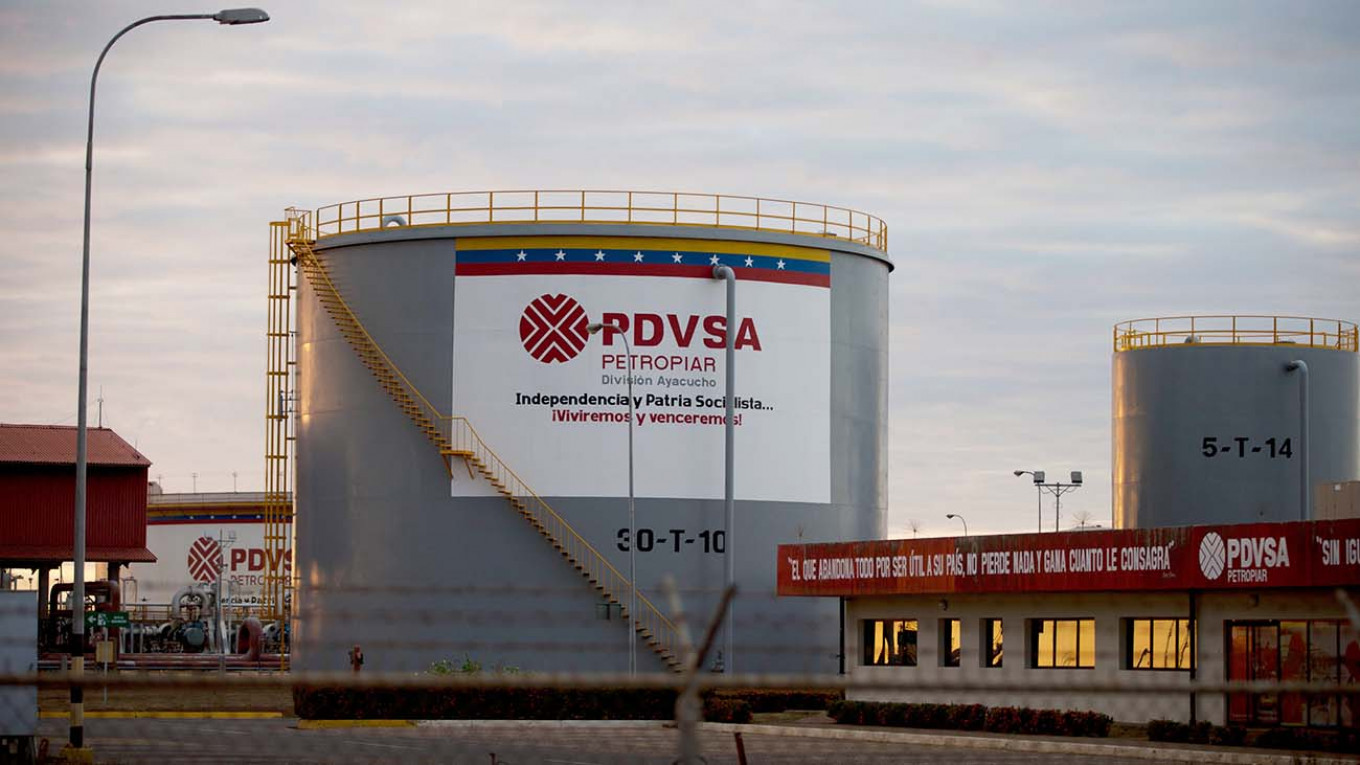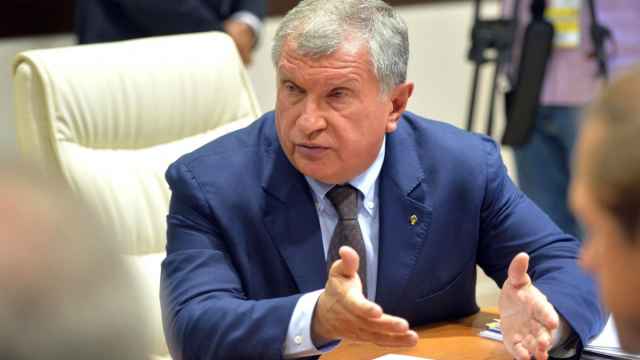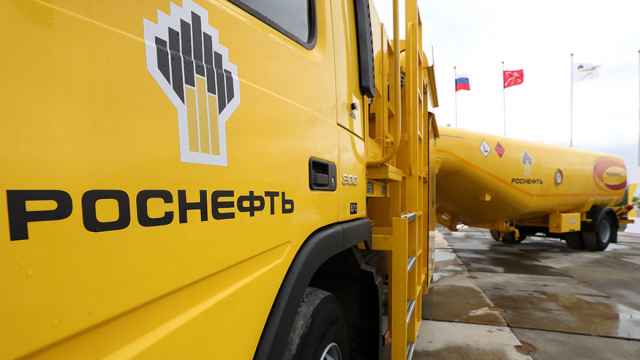State-run Venezuelan oil company PDVSA has shifted several oil cargoes from Rosneft Trading SA, which was hit by U.S. sanctions last week, to another affiliate of the Russian oil giant, internal documents from the Venezuelan company showed, prompting the U.S. special envoy to warn that more firms could be penalized if they “play games.”
According to PDVSA’s trade reports seen by Reuters, four cargoes carrying some 6.7 million barrels of Venezuelan oil which had previously been allocated to Rosneft Trading for February loading were changed in recent days to another unit of the Russian firm, TNK Trading.
Two of the cargo changes occurred in the first week of February. The other two came after the U.S. sanctions date, the data shows.
Rosneft absorbed TNK Trading International after it completed the purchase of TNK BP in 2013. TNK Trading and Rosneft Trading share an address in Geneva, according to online company registry Moneyhouse.
PDVSA and Rosneft did not respond to questions about the changes. Reuters could not determine whether the move was in response to U.S. sanctions.
U.S. Special Representative for Venezuela Elliott Abrams told Reuters on Monday that he was aware of the cargoes shifted to TNK Trading. “I’d only say that if they play games like that with OFAC, all that will happen is additional companies will get sanctioned,” he said, referring to companies trying to work around the sanctions from the Office of Foreign Assets Control.
In an escalation of its “maximum pressure” strategy designed to oust Venezuelan President Nicolas Maduro, Washington imposed sanctions last week on Rosneft Trading SA — PDVSA’s main business partner — and its boss, Didier Casimiro. It provided a 90-day period to wind down transactions with the firm.
U.S. officials accused Rosneft Trading, which last year became the largest intermediary for Venezuelan oil, of propping up PDVSA following the imposition of U.S. sanctions on the state firm at the beginning of last year and engaging in “tricks” to hide the country of origin of some cargoes.
Rosneft has said it considers the U.S. sanctions illegal as Washington has not presented Rosneft with any material showing it was in breach of any restrictions, while other oil firms have continued taking Venezuelan crude for exports.
Sources in PDVSA and the shipping sector said that the change of buyer by the state-run firm was aimed at avoiding problems for transferring, blending or the reselling of the Venezuelan oil.
The changes to the loading schedule mean that eight of the 23 crude cargoes planned for export this month from Venezuela’s main oil terminal, the Jose port, have so far been allocated to TNK Trading International SA.
Another two remained allocated to Rosneft Trading as of Feb. 21, according to PDVSA internal data seen by Reuters. The remaining 13 were allocated to non-Russian companies.
The imposition of the toughest sanctions yet on PDVSA last year shut the company out of its main market, the United States, and resulted in the loss of one-third of its oil exports in 2019. As a consequence, Venezuela's production fell to its lowest level in almost 75 years, making its relationship with Russia of vital importance.
Since late last year, TNK Trading has managed an increasing share of the exports allocated by PDVSA to Rosneft. In January, TNK was allocated 7 of the 10 cargoes intended to be taken by Rosneft, the PDVSA documents showed.
Rosneft’s units take Venezuelan oil as repayment for billions of dollars in loans extended to Venezuela in recent years. They also swap Venezuelan crude for imported fuel that the poverty-stricken South American country desperately needs.
Other firms taking Venezuelan oil as repayment of loans or late dividends including U.S. oil major Chevron and Spain's Repsol — have not been sanctioned by Washington.
The companies did not immediately answer to requests for comment for this story.
Chevron has maintained business relations with PDVSA through a waiver set to expire in April and it has warned that non-U.S. companies could fill the void if it is forced to leave Venezuela, according to its spokesperson, Ray Fohr.
Abrams told Reuters in an interview on Monday that Washington would go after continued customers of Venezuelan oil, including those in Asia, and target intermediaries helping.
PDVSA has so far this month exported 1.01 million barrels of crude and refined products, in line with the average of 2019.
Last week, Maduro declared an “energy emergency” in the OPEC-member and ordered a commission to restructure PDVSA, led by Vice President for the Economy Tareck El Aissami. On Monday, it replaced the company's trade and supply vice president.
A Message from The Moscow Times:
Dear readers,
We are facing unprecedented challenges. Russia's Prosecutor General's Office has designated The Moscow Times as an "undesirable" organization, criminalizing our work and putting our staff at risk of prosecution. This follows our earlier unjust labeling as a "foreign agent."
These actions are direct attempts to silence independent journalism in Russia. The authorities claim our work "discredits the decisions of the Russian leadership." We see things differently: we strive to provide accurate, unbiased reporting on Russia.
We, the journalists of The Moscow Times, refuse to be silenced. But to continue our work, we need your help.
Your support, no matter how small, makes a world of difference. If you can, please support us monthly starting from just $2. It's quick to set up, and every contribution makes a significant impact.
By supporting The Moscow Times, you're defending open, independent journalism in the face of repression. Thank you for standing with us.
Remind me later.






